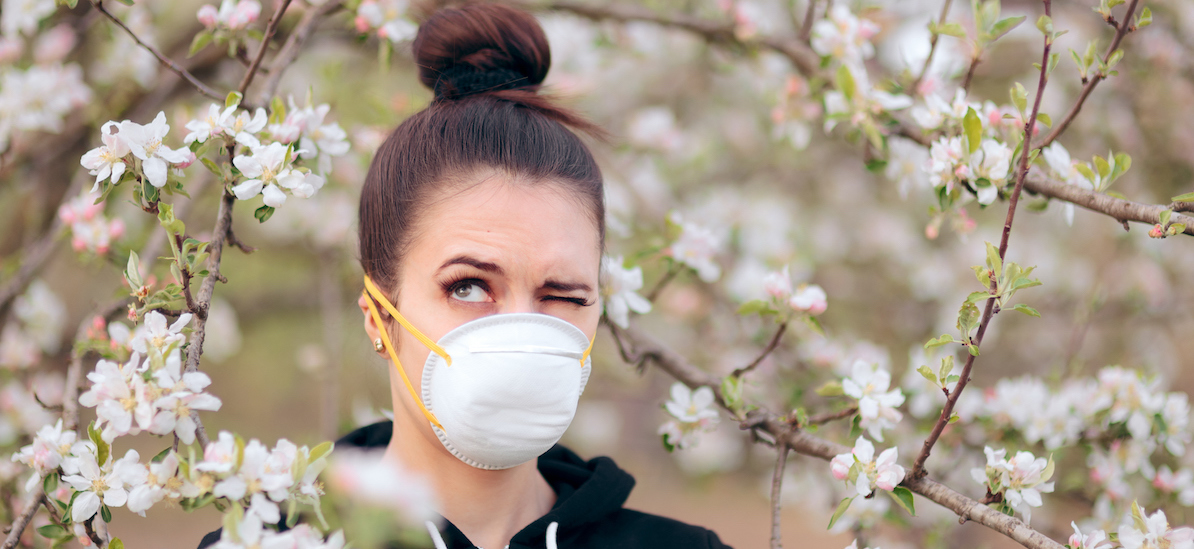Lurking behind daffodils, apple blossoms and every spring harbinger are pollen and other triggers for allergy sufferers.
But the masks we wear that protect against infection from the airborne COVID-19 virus also filter out most allergens floating on spring breezes. This will be especially helpful for people in Connecticut, where both Bridgeport and New Haven made the Asthma and Allergy Foundation of America’s list of the Top 10 challenging places to live for spring allergy sufferers.
More than 19 million Americans suffer from seasonal allergies, giving additional motivation to continue wearing masks as many people begin to relax precautionary behavior as COVID-19 vaccination rates increase nationwide.
Dr. Ulysses Wu, Hartford HealthCare’s System Director of Infection Disease and Chief Epidemiologist, cautioned that those who have been vaccinated can still transmit COVID-19 to others. He urged people to remain vigilant about mask-wearing, hand-washing and physical-distancing habits.
“There’s a rise of cases in New England and we should be worried about the situation we’re in right now,” he said, noting that the nation is in a fourth wave of the pandemic and hospitalizations are again increasing. “How large the impact is up to us. We need to break the cycle of transmission. If we don’t, there’s going to be more variants.”
The fabric in face masks better block particles of pollen than COVID-19 particles, too, because those particles are larger. Pollen from pine trees, for example, are about 800 times the size of COVID-19 particles.
For this reason, many allergists have long recommended patients with seasonal and environmental allergies wear masks, even before they were mandated during the pandemic. Blocking pollen from entering the nose and mouth means fewer allergy attacks.
Recently released research from Israel monitored 215 nurses who wore masks for two weeks. The team noted that of those participants with severe allergies, about 40 percent reported fewer issues such as sneezing and stuffy nose. Of those with moderate allergies, 30 percent experienced improvements when wearing a mask, as did about 54 percent of those with mild allergies.
Masks do not filter allergens from the eyes — leaving them prone to itchy, watery reactions – and going maskless indoors means dust mites and dander can still trigger symptoms. Wearing them, however, should make being outdoors this spring more pleasant for allergy sufferers.
To maximize the protection offered by a mask against COVID-19 and allergens:
- ·Choose one made from tightly-woven cotton that fits snugly over the nose and mouth.
- Wash your mask often. Those allergens can get trapped in the fabric and need to be flushed out to protect you. The Centers for Disease Control recommends washing masks after each use.
- Bring a backup mask if you plan to be outdoors for an extended period of time so you can change it.
- Avoid skin irritation from fabric dyes by wearing paper surgical masks instead of cloth. Many people with allergies are sensitive to certain fabrics.



